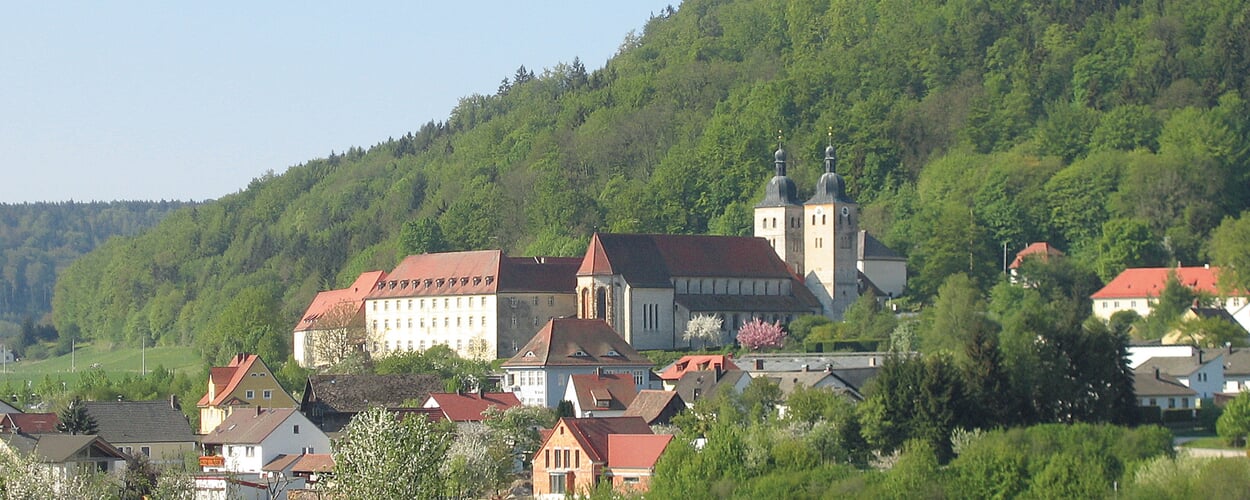Gutes aus Klöstern
Best food in the old way. Benedictine Abbey Plankstetten
The exceptionally tasty foods produced by the Benedictine Abbey of Plankstetten in Upper Palatinate all come from the monastery's own production. For some years now, the monastery has made an excellent name for itself by consistently practicing organic farming and focusing on a regional circular economy. Farming is carried out on a manageable scale: 65 Simmental mother cows live and thrive in open stalls and pastures, and their calves are entitled to every last drop of their mother's milk. There is no dairy farming beyond that. In addition, there are about 40 steers, two breeding bulls, 150 fattening pigs in a barn built in 2011 with generous exercise pens, 80 ewes of the endangered farm animal breed Coburger foxes and a small enclosure with fallow deer. Seeds and plants are propagated ecologically, green genetic engineering is taboo. Pests in the greenhouses are controlled with beneficial insects such as lacewings or predatory mites, while crop protection nets are used outdoors and weeds are mechanically removed. In both bakery and butcher shop, the question was asked, "How did the ancients do it?" The result is tasty breads made according to ancient recipes and from grains such as emmer, one of the oldest cultivated cereals, which is particularly rich in protein and minerals, is low-yielding and requires special effort. In the monastery butchery - unusual also because of its short distances, there are no cattle transports - work is done according to the traditional warm meat method, which makes the addition of artificial phosphates or flavor enhancers unnecessary and uses the natural binding capacity. The curing room is smaller than a monastery cell. Plankstetten is managed with a sense of proportion, both in farming and in the preservation of the historic monastery buildings, which has been steadily advanced in recent years. "It is the earth on which we live," says Abbot Beda Maria Sonneberg, "and it must be in our interest to treat it mindfully and well."

